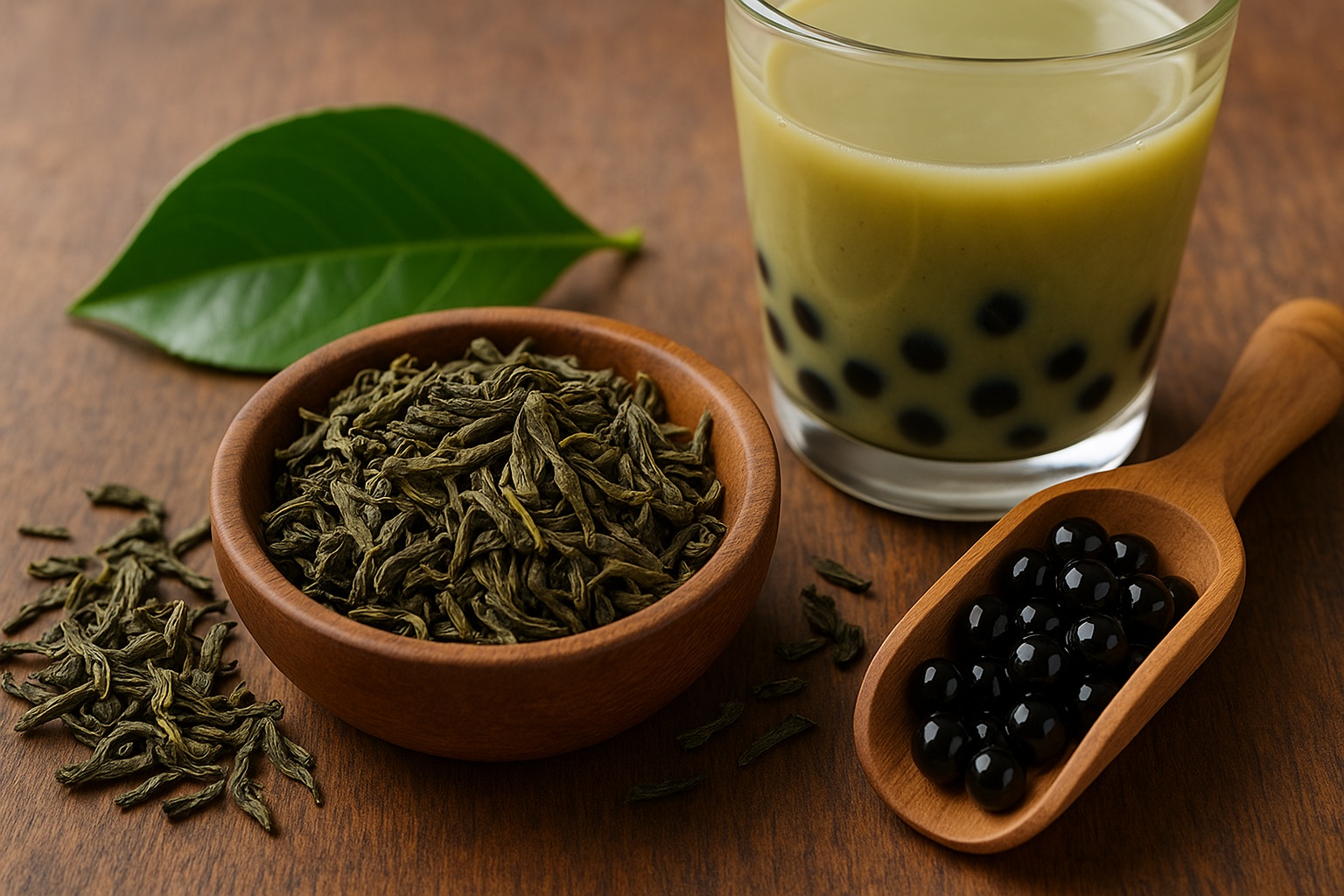Why Food-Grade Boba Suppliers Matter for Your Business

Bubble tea has evolved far beyond a trend — today it is a global beverage category with increasingly sophisticated consumers. As the demand for high-quality, healthier options grows, organic tea leaves have become an essential ingredient for cafés and distributors that want to stand out. Choosing the right organic tea supplier impacts not only flavor but also cost, supply stability, and brand reputation.
In this guide, we review what makes a great organic tea supplier, key certifications to look for, and how to ensure consistent quality for your bubble tea menu in 2025.
Why Organic Tea Matters for Bubble Tea
Organic tea leaves are grown without synthetic fertilizers, pesticides, or herbicides, leading to cleaner flavors and safer beverages. For bubble tea shops, this means:
-
Better taste and aroma – high-grade organic tea often produces a smoother, more complex brew.
-
Marketing advantage – consumers are increasingly health-conscious and willing to pay more for clean-label drinks.
-
Compliance with regulations – especially if you are exporting bubble tea products to markets with strict food safety rules (e.g., EU, US).
Key Factors When Choosing an Organic Tea Supplier
1. Certifications and Traceability
Look for suppliers with recognized certifications such as USDA Organic, EU Organic, or JAS (Japan Agricultural Standard). Reliable suppliers should provide a Certificate of Analysis (COA) for each batch, ensuring pesticide residue, heavy metal, and microbiological safety compliance.
2. Tea Quality and Consistency
Request samples and conduct blind taste tests with your team. A good supplier will offer:
-
Consistent leaf size and grade (e.g., FTGFOP for black tea, Spring flush for green tea)
-
Detailed cupping notes and brewing recommendations
-
Stable supply across harvest seasons
3. Variety and Customization
Select a supplier that provides a diverse range of teas — black, green, oolong, jasmine, matcha — to support seasonal menu innovation. Some suppliers also offer custom blends to create signature flavors unique to your brand.
4. Logistics and Lead Time
For international buyers, check shipping terms (FOB, CIF, DDP) and lead times. Partner with suppliers who maintain buffer stock or have efficient freight solutions to minimize out-of-stock risk.
Top Tips for Working with Organic Tea Suppliers
-
Negotiate MOQs (Minimum Order Quantities): Small MOQs can reduce cash-flow pressure for new shops.
-
Audit periodically: Request updated COAs and supplier audits to ensure compliance with food safety standards.
-
Plan for seasonality: Tea harvest quality fluctuates; secure long-term contracts to lock in pricing and quality.
Global Market Outlook for 2025
According to recent industry reports, the organic tea market is expected to grow by 8–10% annually. This growth is driven by Gen Z and millennial consumers who prioritize sustainability and health. Bubble tea chains in Europe, the Middle East, and North America are increasingly marketing organic ingredients as a differentiator, making 2025 a crucial year to upgrade sourcing strategies.
Final Thoughts
Selecting the best organic tea supplier is not just a procurement decision — it is a brand strategy. By focusing on certified quality, reliable logistics, and long-term partnerships, your bubble tea business can deliver a consistent, premium experience to customers worldwide.
Contact Us
Looking for a trusted organic tea supplier for your bubble tea shop or distribution business? Contact our team to discuss sourcing options, sample requests, and international shipping solutions.

